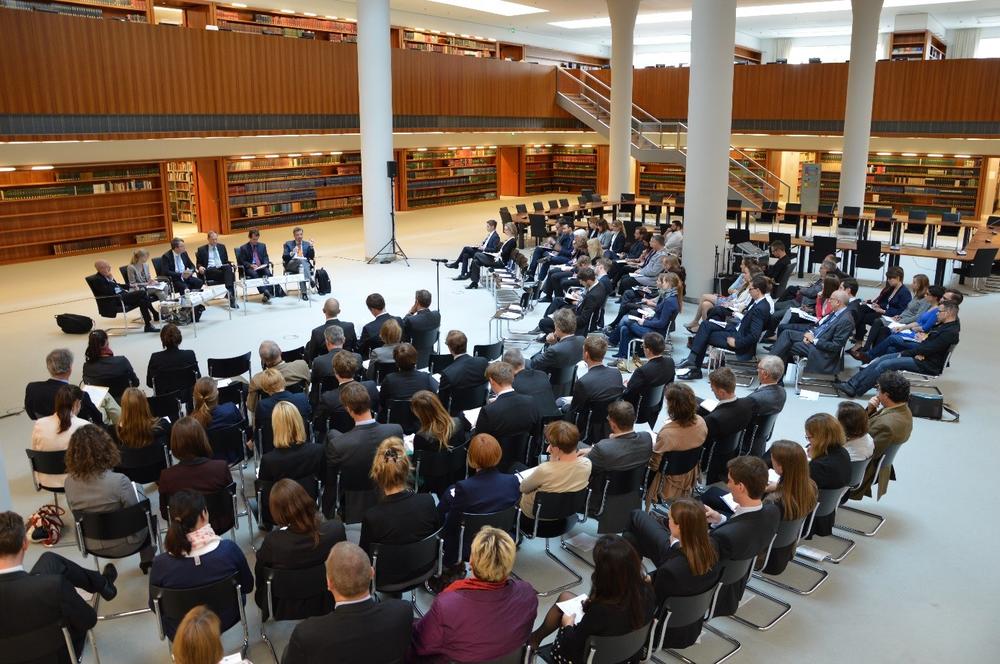German and American Perspectives on Fragile States – A Panel Discussion at the German Federal Foreign Office
Panel discussion at the Federal Foreign Office on dealing with fragile states
Image Credit: own picture
On June 22, 2015, a two-hour panel discussion took place at the German Federal Foreign Office titled “How to Deal with Fragile States? Perspectives from the USA and Germany.”
News from Jul 20, 2015
The joint event of the SFB 700 and the Federal Foreign Office was organized through the transfer project T3, which works in close cooperation with the Federal Foreign Office. Experts from academia and politics participated in the discussion. The event focused on German-American relations, as experts and guests discussed the responsibility of both countries vis-à-vis fragile states, conflicts, and security.
The Federal Foreign Office was represented by Thomas Bagger, director of the Policy Planning Staff, and Ina Lepel, appointee for civilian crisis prevention, humanitarian aid, and international counterterrorism. Andrew Loomis, senior advisor to the US State Department, provided an American perspective. The panel was rounded off with academic expertise from Prof. Thomas Risse, coordinator of the SFB 700, and Prof. Stephen D. Krasner of Stanford University, currently Mercator Fellow at the SFB. Dr. Gregor Walter-Drop, head of the transfer project T3, moderated the discussion.
The evening took place in the reading hall of the Federal Foreign Office’s library. It consisted of an input round from the panel experts followed by a broader conversation. The discussion opened the stage for fundamental questions concerning transatlantic differences in dealing with fragile states and the implications of those differences for future cooperation and partnerships.
The event also provided an opportunity to share experiences and discuss potential “lessons learned” from working with fragile states and dealing with conflicts so far. To conclude, the experts emphasized that in addressing fragile states, it is essential to focus on bi- and multilateral partnerships, local ownership, and the integration and/or development of country-specific expertise. The event was well attended with about 100 guests, and was accompanied by an information and book stand from the SFB 700.

